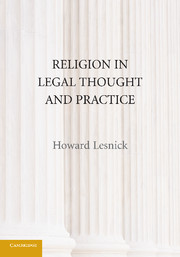Book contents
- Frontmatter
- Contents
- Preface
- I INTRODUCTIONS
- II MORAL OBLIGATION AND RELIGIOUS BELIEF
- 3 What Is the Relation between the Moral Dimension of Obligation and Religious Belief?
- 4 Does Religious Belief Necessarily Have Moral Content? Does Religious Belief Have any Necessary Moral Content?
- 5 What Are the Bases of Resistance to Religiously Grounded Morality?
- 6 Concepts of God, Scripture, and Revelation: The Meanings of “Divine Inspiration”
- 7 Modes of Religiously Grounded Moral Discernment
- III RELIGION AND SOME CONTEMPORARY MORAL CONTROVERSIES
- IV THE INTERACTION BETWEEN RELIGION AND THE SECULAR LAW
- V RESPONDING TO RELIGIOUS DIVERSITY
- VI RELIGIOUSLY GROUNDED MORAL DECISION-MAKING IN PROFESSIONAL LIFE
- Copyright Permission Acknowledgments
- Authors of Works Reprinted
- Scriptural Passages
- Index
5 - What Are the Bases of Resistance to Religiously Grounded Morality?
Published online by Cambridge University Press: 05 June 2012
- Frontmatter
- Contents
- Preface
- I INTRODUCTIONS
- II MORAL OBLIGATION AND RELIGIOUS BELIEF
- 3 What Is the Relation between the Moral Dimension of Obligation and Religious Belief?
- 4 Does Religious Belief Necessarily Have Moral Content? Does Religious Belief Have any Necessary Moral Content?
- 5 What Are the Bases of Resistance to Religiously Grounded Morality?
- 6 Concepts of God, Scripture, and Revelation: The Meanings of “Divine Inspiration”
- 7 Modes of Religiously Grounded Moral Discernment
- III RELIGION AND SOME CONTEMPORARY MORAL CONTROVERSIES
- IV THE INTERACTION BETWEEN RELIGION AND THE SECULAR LAW
- V RESPONDING TO RELIGIOUS DIVERSITY
- VI RELIGIOUSLY GROUNDED MORAL DECISION-MAKING IN PROFESSIONAL LIFE
- Copyright Permission Acknowledgments
- Authors of Works Reprinted
- Scriptural Passages
- Index
Summary
When I mention religion, I mean the Christian religion; and not only the Christian religion, but the Protestant religion; and not only the Protestant religion, but the Church of England.
Parson Thwackum9/11 AND GOD's SPORT BILL MOYERS
Cross Currents, Winter 2005–2006
This article was originally delivered on the occasion of Union Theological Seminary's 170th Convocation, September 7, 2005. Along with his wife, Judith Davidson Moyers, Mr. Moyers was the recipient of the Union Medal.
To be in the company of so many friends, faculty, and students of Union is to be reminded of the great conversation that has occurred at Union Theological Seminary for 170 years. I find it exhilarating and intimidating just to imagine the long train of witnesses who constitute this community of faith.
Just in my lifetime:
Dietrich Bonhoeffer was studying here when he decided to return to his native Germany and join the resistance against Hitler and the Nazis. The choice cost him his life.
Paul Tillich taught here, reminding his students that “being religious means asking passionately the question of the meaning of our existence and being willing to receive answers, even if the answers hurt.”
Reinhold Niebuhr taught here, always seeking to apply Christian morality to public issues even as he warned against the “ironic tendency of virtues to turn into vices when too complacently relied upon.” It was his profound insight into human nature and the nature of politics that enabled so many of us to understand that “Man's capacity for justice makes democracy possible; but man's inclination to injustice makes democracy necessary.”
- Type
- Chapter
- Information
- Religion in Legal Thought and Practice , pp. 105 - 141Publisher: Cambridge University PressPrint publication year: 2010

